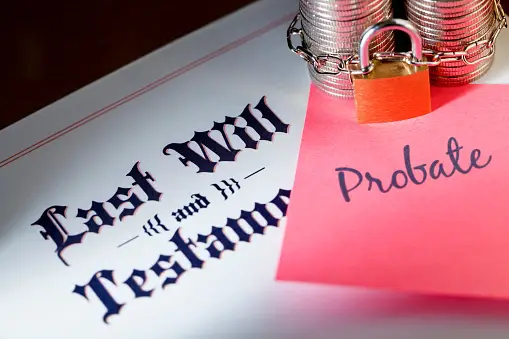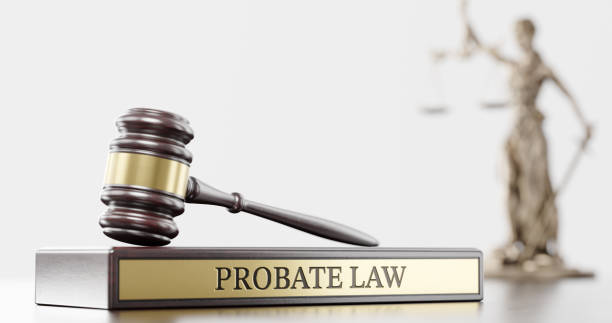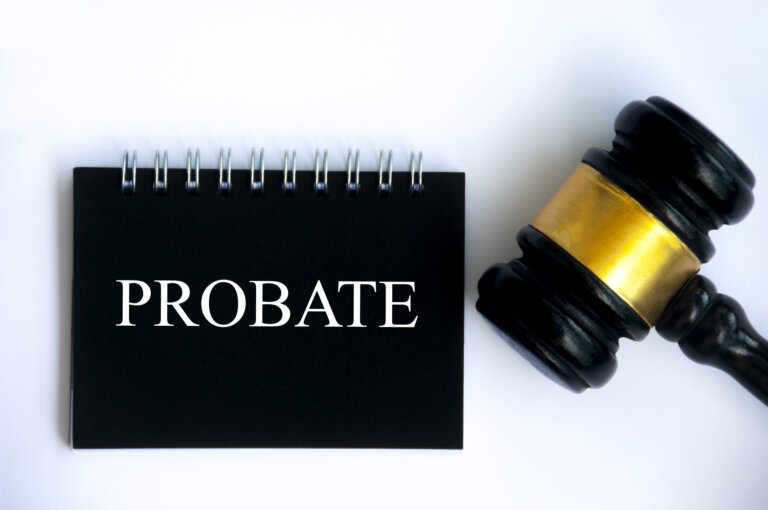Probate in Texas is a legal procedure that serves several essential functions following the passing of an individual. It is designed to ensure the orderly distribution of a deceased person’s assets and the resolution of their outstanding debts and obligations. This process plays a crucial role in safeguarding the rights of the deceased person and their heirs or beneficiaries. One of the primary objectives of probate in Texas is to validate the deceased person’s will, assuming they had one. The court examines the will to ensure its authenticity and that it complies with the state’s legal requirements. If there’s no valid will, the court will follow the intestacy laws of Texas to determine how the deceased person’s property should be distributed. This often involves prioritizing spouses, children, and other close relatives.
Here’s how it goes:
During the probate process, the executor, typically nominated in the will, manages the deceased person’s estate. This includes identifying and valuing assets, paying outstanding debts, and handling tax obligations. The executor must also ensure that the assets are distributed to the designated beneficiaries according to the terms of the will or the state’s intestacy laws. It’s important to note that not all assets are subject to probate in Texas. Some assets, like life insurance policies with named beneficiaries, retirement accounts with designated beneficiaries, and jointly held property with rights of survivorship, may pass outside of the probate process directly to the named beneficiaries.
While probate is critical in the orderly transfer of assets, it can be a complex and time-consuming process. It involves filing various documents with the court, notifying creditors, and addressing any disputes or challenges that may arise. Additionally, there are court fees and legal costs associated with the probate process. To navigate probate in Texas effectively, it’s advisable to seek legal counsel, especially if the estate is sizable or if there are complexities, such as disputes among heirs or creditors’ claims. An experienced attorney can help streamline the process, ensure compliance with state laws, and minimize the potential for conflicts during this challenging time.
The Probate Process In Texas

The probate process in Texas is a structured legal procedure that occurs after an individual has passed away. It involves several key steps, which I’ll outline for you:
Filing the Initial Petition:
The probate process typically begins with filing an initial petition in the county where the deceased person resided. This petition can be filed by an executor named in the will or an interested party if there’s no valid will.
Notification to Heirs and Beneficiaries:
Once the petition is filed, notice of the probate proceedings must be provided to all interested parties, including heirs and beneficiaries. This ensures everyone with a claim or interest in the estate knows the proceedings.
Validation of the Will:
If there is a valid will, the court will review it to ensure its authenticity and compliance with Texas law. On the other hand, if the will is deemed valid, it will guide the distribution of assets. If there is no will (intestacy), the court will follow Texas’s intestacy laws to determine how assets are distributed.
Appointment of Executor or Administrator:
The court will appoint an executor (if named in the will) or an administrator (if there is no will) to oversee the probate process. This person manages the estate, including identifying and valuing assets, paying debts, and distributing assets to heirs or beneficiaries.
Inventory and Appraisal:
The executor or administrator must compile an inventory of all the deceased person’s assets, including their value, which is then submitted to the court for review.
Payment of Debts and Taxes:
Outstanding debts, taxes, and expenses related to the estate must be paid from the estate’s assets. This includes funeral expenses, outstanding bills, and any estate taxes owed.
Asset Distribution:
After settling debts and taxes, the remaining assets are distributed to heirs or beneficiaries as outlined in the will or according to Texas intestacy laws.
Final Accounting and Closing:
The executor or administrator provides the court with a final accounting detailing all financial transactions related to the estate. The estate is closed once the court approves the accounting and is satisfied that all matters have been resolved.
Distribution of Inheritance:
Heirs or beneficiaries receive their inheritance as specified in the will or according to Texas law. This may include cash, real estate, personal property, or other assets.
Closing the Estate:
After all required steps are completed, the court officially closes the probate estate, which signifies the end of the probate process.
It’s essential to note that the probate process can vary in complexity depending on the size of the estate, the presence of a valid will, and potential disputes or challenges from interested parties. Consulting with an attorney experienced in Texas probate law can be highly beneficial in navigating this process efficiently and ensuring compliance with state regulations.
Protecting Assets During Probate In Texas
Protecting assets during the probate process in Texas is a crucial concern for many individuals, especially if they want to preserve the estate’s value or ensure that specific assets are passed on as intended. Here are some strategies and considerations for safeguarding assets during probate in Texas:
Plan Ahead with a Will:

One of the most effective ways to protect assets during probate is to have a well-drafted will. This allows you to specify how your assets should be distributed, reducing the likelihood of disputes and ensuring your wishes are fulfilled.
Create Trusts:
Establishing trusts can help protect assets from the probate process. Trusts allow you to transfer assets to a trustee who manages them on behalf of beneficiaries according to your instructions. Revocable living trusts are commonly used for this purpose.
Joint Ownership:
Holding assets jointly with rights of survivorship can avoid probate for certain assets. When one owner passes away, the asset automatically transfers to the surviving owner(s) without going through probate.
Designate Beneficiaries:
Assets such as life insurance policies, retirement accounts, and bank accounts often allow you to designate beneficiaries. These assets will pass directly to the named beneficiaries outside of probate.
Gift Assets:
Consider gifting assets to your heirs or beneficiaries during your lifetime. There are annual gift tax exclusion limits, but this can reduce the value of your estate subject to probate.
Use Small Estate Affidavits:
If the estate’s total value is below a certain threshold in Texas, you can use a small estate affidavit to transfer assets without going through full probate.
Homestead Protections:
Texas has strong homestead protections, which means your primary residence may be exempt from certain creditors’ claims during probate. Understanding these protections is crucial.
Seek Legal Guidance:

Consult with an experienced Texas probate attorney is highly advisable. They can help you create a comprehensive estate plan, navigate the probate process, and employ strategies to protect your assets.
Be Diligent with Record-Keeping:
Keep detailed records of your financial transactions, including property titles, deeds, and financial accounts. This will help ensure a smoother probate process and protect your assets.
Consider Family Settlement Agreements:
In some cases, family members may agree to distribute assets outside of probate court, which can help avoid costly legal proceedings.
It’s important to note that asset protection strategies should be implemented well before needing them, as last-minute attempts to shield assets may be subject to legal challenges. Additionally, the specific circumstances of your estate may require tailored approaches, which is why consulting with a qualified attorney is often the best course of action.
Conclusion
Protecting assets during probate in Texas requires proactive measures and careful management. Each step plays a vital role in preserving the estate’s value, from securing physical assets and managing financial accounts to addressing debts and minimizing family disputes. By appointing a competent executor and utilizing estate planning tools, you can ensure a smoother probate process and safeguard the decedent’s legacy.








